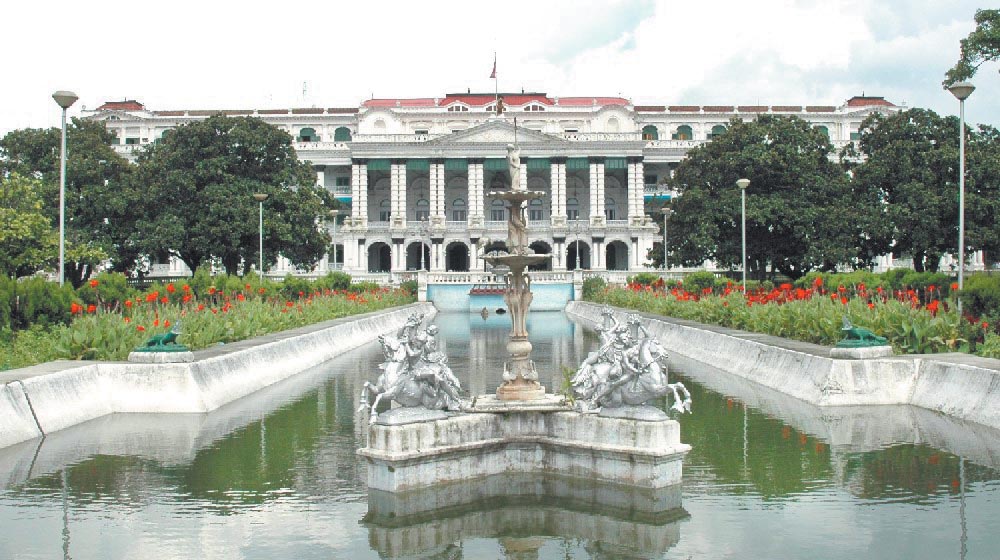LBRC member to move SC against govt’s decision
If the LBRC is pushed into a situation where it cannot accomplish its task as per the spirit of the constitution, LBRC members may think of quitting the body
• LBRC member Neeraj Shah
Kathmandu, September 29
Advocate Sunil Ranjan Singh, a member of the Local Bodies Restructuring Commission, today said he would move the Supreme Court against the government’s decision to revise the terms of reference for the LBRC.
Singh told THT that the government’s recent letter to the LBRC informing it of the revised ToR was against the law and he would not accept it. Singh said he would move the SC in a day or two.
“As per Section 171 (2) of Local Self-governance Act, 1999, the boundaries of Ilakas (Areas) cannot be changed. If the government wants to change the boundaries it should take prior consent of the Election Commission one year before the elections,” he said.
“ On the one hand, the government wants the LBRC to keep the boundaries of the municipalities unchanged; while on the other, it wants Ilakas to be converted into local bodies.”
Singh said the government’s decision to convert Ilakas into local bodies was a violation of LBRC’s constitutional jurisdiction. He wrote a letter to LBRC Chair Balananda Paudel informing him of his decision to reject the government’s decision to revise the ToR.
Singh stated that he did not accept anything that the Ministry of Local Development and Federal Affairs wrote yesterday to LBRC (about revision of the ToR for the commission).
Another member of the LBRC Neeraj Shah told THT that the commission had been consulting experts on whether or not the government’s new decision infringed upon the commission’s jurisdiction.
“Once we reach the conclusion that the government’s decision to revise the ToR violates our jurisdiction, we will write to the government and seek redressal of our concerns,” he said.
He added that if the LBRC was pushed into a situation where it could not accomplish its task as per the spirit of the constitution, LBRC members might think of quitting the body.
Shah said the government unilaterally imposed its decision without consulting the LBRC. “We were about to submit our reports in three weeks.
The government’s new decision means we will have to start our work from scratch,” he added. He said the LBRC had already received reports from 54 districts and would receive reports from seven districts in the coming days.
“Over 30,000 people had directly taken part in our work. We had a little problem in eight districts of Madhes and we were expecting that talks between political parties would resolve problems in those districts which could help us complete our task,” Shah added.
He said the LBRC was not sure whether Ilakas would get constitutional validity and whether Ilakas could address the issues of special and autonomous areas.
The ministry had written to the LBRC yesterday informing it of the government’s decision to revise the ToR for the commission.
In the letter, the ministry has said that the commission should treat Ilakas as main criterion while determining the boundaries of local bodies, special or autonomous areas. The ministry has also directed LBRC to keep municipalities unchanged.
It has also said that if any Ilaka did not deserve to be a local body in terms of population, area and other important determinants, the LBRC would not be hindered to incorporate more than one Ilaka.
The ministry also told the commission to reduce the area of any particular village council or municipality if they are too large in terms of accessibility.






